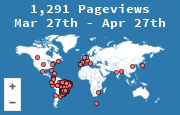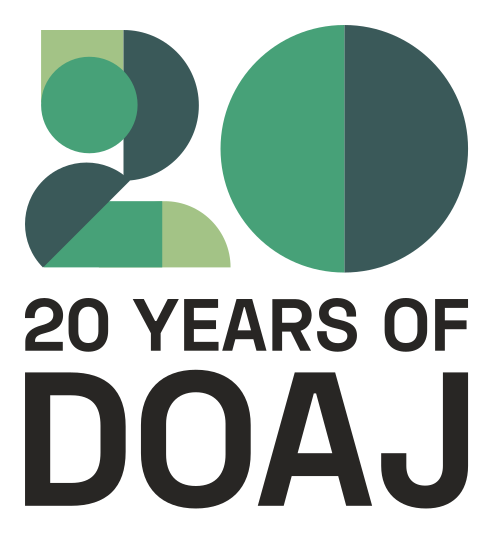Guests connected? A study on the importance of wifi in the hotel context
DOI:
https://doi.org/10.26512/revistacenario.v9i2.35519Keywords:
Hospitality; Wi-fi; QualityAbstract
The wi-fi service provided by hotels is a current need of hotel guests, but hotels seem not to be providing this service along with the perception of quality of guests. This research aims to demonstrate to the academy and the current market scenario, the importance of wi-fi in the current hotel context. The study was divided into three stages. In the first, 111929 thousand online comments about São Paulo Hotels were collected and analysed using TLAB Software to verify the main commented attributes about wi-fi and internet. The second stage consisted of applying online questionnaires with 83 people who have already stayed in hotels and the third stage consisted of applying an online questionnaire with eight hotel managers to compare the data with those collected in steps 1 and 2. The data collected demonstrate how important wi-fi internet is to hotels. 51.9% of hotel guests find wi-fi internet very important within the hotel
Downloads
References
Avila, Joseph. (2008) Hot Spots Are Weak Spots That Guy Across the Lobby May Be Invading Your Laptop; How to Go Online More Safely. The Wall Street Journal, Nova Yorki, p.1-2. Disponível em: <https://www.wsj.com/articles/SB120043982997492645>. Acesso em: 25/10/2019.
Bankmycell (Comp.). (2019) Global smartphone penetration data. 2019. Disponível em: <https://www.bankmycell.com/blog/how-many-phones-are-in-the-world>. Acesso em: 01 out. 2019.
Bilgihan, A. (2016). Gen Y customer loyalty in online shopping: An integrated model of trust, user experience and branding. Computers in Human Behavior, 61, 103-113.
Bilgihan, A., Smith, S., Ricci, P., & Bujisic, M. (2016). Hotel guest preferences of in-room technology amenities. Journal of Hospitality and Tourism Technology.
Buhalis, D., & Zoge, M. (2007). The strategic impact of the Internet on the tourism industry. Information and communication technologies in tourism 2007, 481-492.
Cobanoglu, C., Bilgihan, A., Nusair, K. K., & Berezina, K. (2012). The impact of Wi-Fi service in restaurants on customers' likelihood of return to a restaurant. Journal of Foodservice Business Research, 15(3), 285-299.
Creswell, J. W. (2010). Projeto de pesquisa métodos qualitativo, quantitativo e misto. In Projeto de pesquisa métodos qualitativo, quantitativo e misto (pp. 296-296).
Cronin Jr, J. J., & Taylor, S. A. (1992). Measuring service quality: a reexamination and extension. Journal of marketing, 56(3), 55-68.
Gil, A. C. (2002). Como elaborar projetos de pesquisa (Vol. 4, p. 175). São Paulo: Atlas.
Malheiros, Ã. A., Gonçalves, M. A., & Petry, T. R. E. (2018). Indicadores da qualidade dos serviços hoteleiros prestados em florianópolis sob a visão dos hóspedes. Applied Tourism, 3(3), 1-12.
Mettler, L. (2015). Millennial appeal: 5 ways hotels are engaging gen Y. US News. Available at http://travel. usnews. com/features/Millennial-Appeal-5-wayshotels-are-engaging-Gen-Y/Accessed, 9, 15.
Mondo, T. S. (2014). TOURQUAL: proposta de um modelo de avaliação da qualidade de serviços em atrativos turísticos.
Mondo, T. S., & Fiates, G. G. S. (2015). Qualidade de Serviço em Atrativos Turísticos: um estudo da percepção dos turistas de Florianópolis-SC-Brasil. Revista Turismo em Análise, 26(1), 112-138.
Quiroga, R. M., Mondo, T. S., & de Castro Júnior, D. F. L. (2014). Reputação online como instrumento para melhoria de serviços: um estudo na hotelaria de Garopaba e Imbituba”“Santa Catarina. Revista de Turismo Contemporâneo, 2(1).
Shahin, A., & Samea, M. (2010). Developing the models of service quality gaps: a critical discussion. Business Management and Strategy, 1(1), 1.
Sparks, B. A., & Browning, V. (2011). The impact of online reviews on hotel booking intentions and perception of trust. Tourism management, 32(6), 1310-1323.
TripAdvisor. (2019) How to attract the Gen Y hotel guest. 2015. Disponível em: <https://www.tripadvisor.com/TripAdvisorInsights/w650>. Acesso em: 26 out. 2019.
Xu, X., & Li, Y. (2016). The antecedents of customer satisfaction and dissatisfaction toward various types of hotels: A text mining approach. International journal of hospitality management, 55, 57-69.
Zeithaml, V. A. (1988). Consumer perceptions of price, quality, and value: a means-end model and synthesis of evidence. Journal of marketing, 52(3), 2-22.
Downloads
Published
How to Cite
Issue
Section
License
Copyright (c) 2021 Cenário: Revista Interdisciplinar em Turismo e Território

This work is licensed under a Creative Commons Attribution-NonCommercial-NoDerivatives 4.0 International License.
1. Proposta de Política para Periódicos de Acesso Livre
Autores que publicam nesta revista concordam com os seguintes termos:
Autores mantém os direitos autorais e concedem a revista o direito de primeira publicação, sendo o trabalho simultaneamente licenciado sob a Creative Commons Attribution License o que permite o compartilhamento do trabalho com reconhecimento da autoria do trabalho e publicação inicial nesta revista.
A contribuição é original e inédita, e não está sendo avaliada para publicação por outra revista.
Autores cedem os direitos de autor do trabalho que ora apresentam a apreciação do Conselho Editorial da Revista Cenário, que poderá veicular o artigo na Revista Cenário e em bases de dados públicas e privadas, no Brasil e no exterior.
Autores declaram que são integralmente responsáveis pela totalidade do conteúdo da contribuição que ora submetem ao Conselho Editorial da Revista Cenário.
Autores declaram que não há conflito de interesse que possa interferir na imparcialidade dos trabalhos científico apresentados ao Conselho Editorial da Revista Cenário.
Autores têm autorização para assumir contratos adicionais separadamente, para distribuição não-exclusiva da versão do trabalho publicada nesta revista (ex.: publicar em repositório institucional ou como capítulo de livro), com reconhecimento de autoria e publicação inicial nesta revista.
Autores têm permissão e são estimulados a publicar e distribuir seu trabalho online (ex.: em repositórios institucionais ou na sua página pessoal) a qualquer ponto antes ou durante o processo editorial, já que isso pode gerar alterações produtivas, bem como aumentar o impacto e a citação do trabalho publicado.











